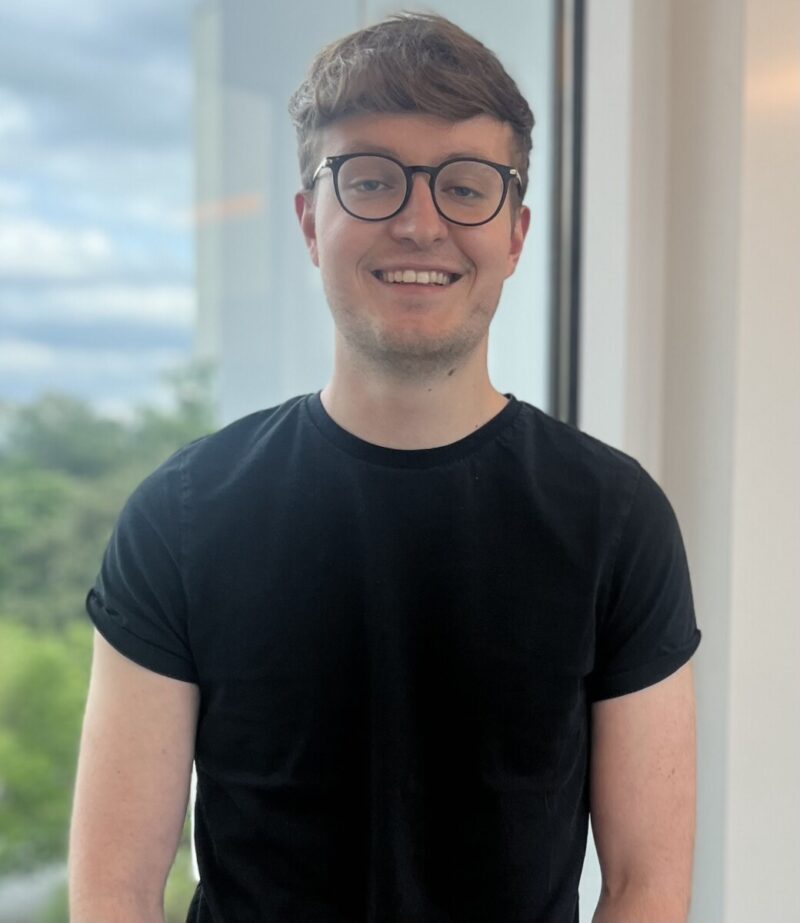
On Friday, May 19th, VHC/FLT visiting scholar, Samuel S. Burry, gave a presentation on the research he conducted during his two weeks of research in the Feminism and Legal Theory Archives at Emory Law. Burry’s research uncovered what many of those who engaged with FLT and VHC workshops already know – that the FLT/VHC Workshops are a unique and invaluable location of knowledge production, where revolutionary ideas are generated, questioned, and tempered in a true collegiate spirit of feminist discourse. Sam articulated how a feminist ethic of non-hierarchical engagement and knowledge production shaped these workshops. He found that much current critical legal thought is rooted in these workshops and told us that this lineage of ideas is invisible to most feminist legal historians. It is our hope that Sam’s research and publications as a legal historian will help make visible the forgotten history and impact of the Feminism and Legal Theory Project workshops, especially as ethics of care are currently examined without regard to the work that has been done already.
As we approach the 40th anniversary of the Feminism and Legal Theory Project, we offer the FLT Archive as a repository of radical and relevant knowledge and ideas that even now has the potential to shape our world for the better.
Reflections on Sam’s talk are below. Please email us at vhc-flt [at] emory [dot] edu if you would like to view a recording of his talk.
Jennifer Hickey, Postdoctoral Fellow, Emory Law:
I found Sam Burry’s presentation of his work with the FLT archive fascinating. I imagined him as an intellectual Indiana Jones, descending into the depths of the library and emerging with a treasure trove of critical legal thought. Sam’s “rediscovery” of FLT artifacts inspired me in several ways. First, it made me aware of just how much insight can be gained from the things we don’t see in published work. He presented just a small portion of the valuable discussions and calls for papers he unearthed, yet they provided a rich understanding not only of the theoretical foundations being laid, but also of the empirical realities, discursive dynamics, and collaborative methodologies that shaped this theoretical development. Second, it made me realize that so many of the legal and social issues we struggle with today, particularly in the reproductive justice space, were already being addressed decades ago in groundbreaking ways. Sam’s presentation helped me recognize the importance of incorporating this historical insight into my future work and really inspired me to spend time with this material. Third, as a fellow Political Science PhD student, I was excited to learn about the qualitative methodology Sam employed to extract themes from workshop discourse and place the archive material in its social and historical context. I hope to employ similar methods in the future.
Atieno Mboya Samandari, Professor of Practice, Emory Law:
Sam Burry’s presentation on the Feminism and Legal Theory Project was interesting and illuminating. His work, which is still in a very preliminary stage, looked at the historical context of the FLT Project and sought to get to the foundations of the Project, and its contributions to Critical Legal Thought in America. Sam was seeking to uncover which foundational questions became key to FLT and why.
Sam’s articulation of the Project and its confluence with the Law and Society Movement, both of which are empirical in their approach to developing legal theory, was an illuminating framing of the Project. His presentation looked at 4 themes, among them being the Call for Papers approach of the FLT workshops, (and of the Vulnerability and the Human Condition Workshops which followed them). This inclusive approach to scholarly discourse, he noted, was different from the traditional scholarly method of theory development by a scholar (or a couple of scholars), working on their own, and at times removed from the empirical realities of their scholarly work. The inclusive “Call-for-Papers” approach has, as Professor Fineman noted, resulted in the creation of a community of scholars in what was a nascent field during the early days of FLT, and is echoed in the VHC workshops today. The workshops and the publications that flow from them have scholars dialoguing with one another, at times challenging each other, finding points of agreement and of difference, all of which aid in the growth and development of the theories at hand. As a scholar that is interested in both FLT and vulnerability theory myself, Sam’s presentation is a catalyst for my own thinking on how the knowledge and ideas that are reposited in FLT/VHC Archive, can contribute to contemporary conversations and scholarship in the field of international environmental law, which is my area of focus.
Helena Moradi, Postdoctoral Fellow:
Samuel Burry presented his findings about the Feminism and Legal Theory (FLT) Project archive at the Vulnerability and the Human Condition Initiative (VHC), Emory University, a rich repository of materials related to feminist legal thought, which comprises seminal works from the dawn of the FLT project and has continued to accumulate contributions representing diverse voices from emerging scholars. Although the archive echoes the marginalization and often exclusion of FLT from academia, it opens up opportunities for interdisciplinary research, allowing scholars to explore and gain a more comprehensive understanding of the FLT Project and its contribution to the development of feminist legal thought.
For me, perhaps the most interesting possibilities the archive offers are exploring the insights furnished by FLT that shaped vulnerability theory – specifically, how it engages with the ontological body and the concept of embodied vulnerability – a significantly different starting point from that typically adopted in contemporary legal and political discourse. The archive’s extensive collection, renders it a rich resource for interdisciplinary research and I’m very much looking forward to Samuel Burry’s doctoral dissertation, and am sure that the archives will continue to inspire scholars to discuss the project itself as well as the ideas that have emerged from the dialogues within the FLT project.